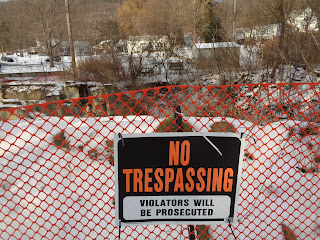Monday, July 20, 2015
5 Reasons Your Story Isn't Working
Sometimes a story just doesn't work. You're typing along, lalala, story story story, and then suddenly, BAM you hit a wall! Then it's goodbye story, hell-llo writer's block!
The first step in getting your story back on track is to figure out why you're stuck. Here are five reasons you may be having difficulties.
1. You've lost your passion
Sometimes the spark just goes away. You lose interest in whatever gave you the idea for this story in the first place, you realize you don't really want to work with these characters anymore, you start to hate the genre it's in--whatever the reason, you lose the will to keep pushing forward. When you just plain lose interest, it's hard to reignite it. You could try reacquainting yourself with your story, reworking the plot, throwing in new characters--or you could put it away for a while and see if it calls out to you again later on. It may have potential, but maybe your gut is trying to tell you something.
2. You're using the wrong medium
Some books are made for a Word document, some for pencil and paper, and some for carving into the cliffside with a rusty spoon.
Different mediums create different actions, different motions, different moods, all of which affect the way you think about your story. A slow-paced urban fantasy written in heavy dialect might call for longhand, but a fast-paced passionate science fiction tale might need to be hammered into a keyboard. Try experimenting with different mediums and see if there's something that clicks.
3. You're using the wrong narrator
Your narrator should be in the best position to tell the story--they need not necessarily be the coolest character, the most powerful character, the character who ultimately wins, or even a character at all, but they do need to be in the best place to describe the happenings of tale, which means that if they are a character, they need to be in the thick of the action, or in a position to see the story as it needs to be relayed. If your narrator is off in the background of the story you really want to tell, you should consider either bringing them closer to the action, or making another character the narrator.
At the same time, if you need to hold certain information outside of the audience's reach, you need to put the story in the hands of a narrator who will either not know this, or have a good reason for keeping it out of the narrative.
4. You don't yet have the tools or skills you need
Sometimes there are more complicated maneuvers that a story necessitates which we don't yet have the experience or finesse to pull off, and that inexperience can drag at the story, sometimes causing the tires to blow or bouncing up to break the windshield. You might be able to get yourself to the point you need to reach through simply pushing yourself through this story, researching what you need to and putting yourself through writing exercises, but sometimes you need to stop, put this manuscript aside, and let it stew while you build your skill level.
5. You're not telling the right story
Sometimes there's a really amazing story embedded in a manuscript--"this galactic war is so fascinating," the reader says, "so why are we spending only three pages looking into it while eight hundred are wasted on a forced and cliched romance?"
If your story doesn't seem to be working, look it over again. Is there something more interesting, more enthralling happening behind the scenes? Does some of your world's history or a character's backstory jump out at you as a better read? Maybe you need to expand upon that, instead.
Or maybe there's a completely different story out there, waiting for you to come and claim it.
Subscribe to:
Post Comments (Atom)

No comments:
Post a Comment